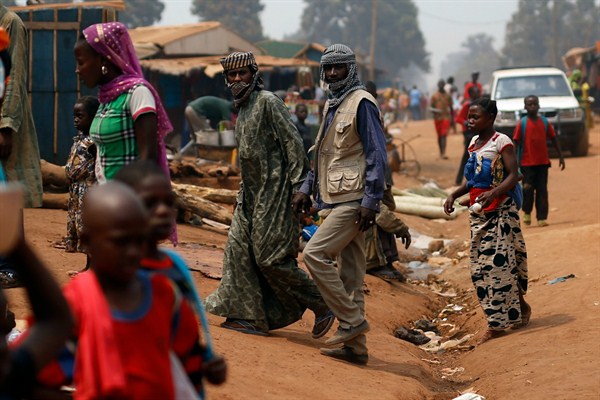According to Human Rights Watch, a new rebel group in the Central African Republic—known as Return, Reclamation, Rehabilitation—has killed at least 50 people and displaced over 17,000 in the northwest of the country since late 2015. In an email interview, Igor Acko, a program specialist for the United States Institute for Peace based in Bangui, discusses the security situation in CAR.
WPR: What are the main rebel groups in the Central African Republic, and who makes up their support bases?
Igor Acko: The armed groups in the Central African Republic fall under two main categories: the Seleka and the Anti-Balaka. The Seleka, meaning “alliance” in Sango, was formed when four rebel groups drawn from predominantly Muslim communities in the northeast merged in late 2012. They began descending toward the capital, Bangui, claiming to represent the rights of marginalized communities in northeastern CAR with the intent of overthrowing the government. As they traveled, the Seleka recruited additional fighters to their ranks, attacking and looting villages as they went. This led to the formation of “self-defense” groups drawn primarily from CAR’s Christian and animist populations, known collectively as the Anti-Balaka, or anti-machete. The Anti-Balaka retaliated against the Seleka’s abuses by attacking CAR’s Muslim population, whom they associated with the group.

